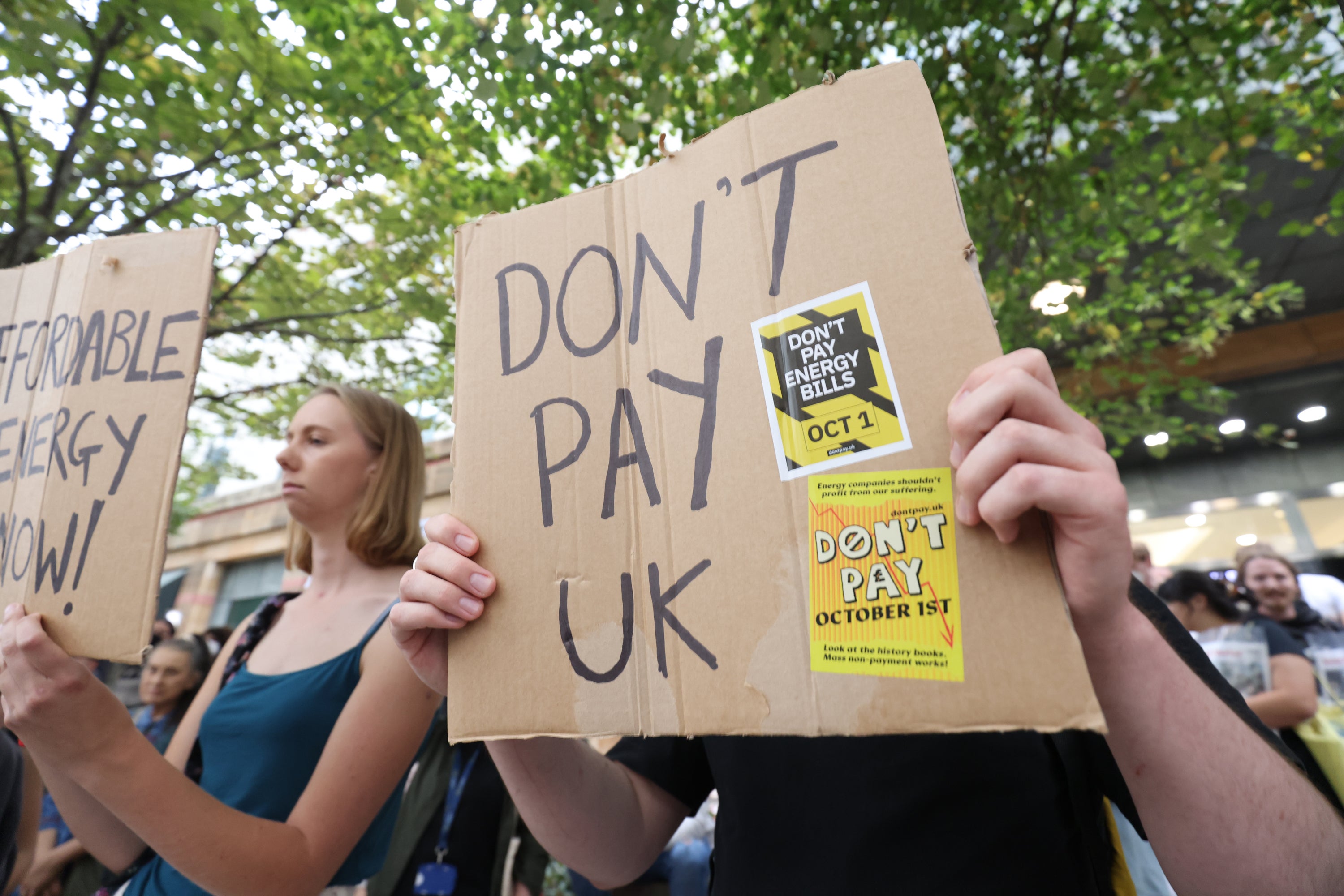
Thousands of people are expected to take to the streets in cities across the UK to burn their energy bills in protest at sky-high gas and electricity costs and the wider cost of living crisis.
Demonstrations are set to take place from Plymouth to Glasgow on Saturday as the energy price cap is lifted, taking the average household bill to a record £2,500 - up from £1,971.
The amount that a household pays for each kilowatt hour of electricity it uses rose to 34p from the already record 28p, while gas prices when from 7p to 10p per kilowatt hour.
Last month the government stepped in to help cushion the blow of higher prices by announcing a freeze on unit costs, meaning that they will not rise above their 1 October level for two years.
Millions of families will continue to feel the pinch, however, as the cost of food and other everyday items increases while wages fail to keep pace with soaring inflation and interest rates are hiked, with mortgages becoming more expensive.

Grassroots campaigners Don't Pay UK have called for a day of "national action" and will be among those setting fire to their energy bills in several cities, including London, Birmingham, Manchester and Glasgow.
Don't Pay UK has already launched a campaign which has received nearly 200,000 pledges from people who said they were prepared to stop paying their energy bills.
It says it will go ahead with the "strike" if the campaign reaches 1 million signatures.
Saturday's protests take place amid the biggest rail strike in the UK for decades, as workers embark on another round of industrial action in an ongoing row over pay and conditions.
They come after a tumultuous week for the UK economy following the government's "mini-Budget" on 23 September, when Kwasi Kwarteng, the chancellor, announced tax cuts - funded by borrowing - that will disproportionately benefit the wealthy.
The value of the pound plummeted following Mr Kwarteng's financial statement, although it has since recovered following a number of interventions by the Bank of England.
Reports on Wednesday said a number of pension funds would have collapsed had the Bank not stepped in to buy government bonds - or gilts - as the cost of borrowing soared.
Despite the turmoil in the financial markets Mr Kwarteng and Liz Truss, the prime minister, insisted they would not change course on their plans for the economy.
Enough is Enough, a campaign backed by the postal workers’ union, CWU, said it would stage 28 rallies on Saturday. Don’t Pay, which organised through groups on Whatsapp, said it was running events in 18 towns and cities.
“People are completely outraged about how severe and immediately material the effects will be on their living standards and how transparently unfair they are,” Franklin Dawson, a 29-year-old graduate student and part of a Don’t Pay group in Lewisham, told The Guardian.
“People are upset about what this is doing to communities around them.”
Paul Bentick, a 65-year-old carpenter from Liverpool, said he was planning to attend a protest for the first time when he joins the Enough is Enough rally in Liverpool.
Mr Bentick said he was financially comfortable but was protesting because “I feel for other people”. He said he heard about Enough is Enough from a taxi driver.
“The working class gets pushed further and further,” he said. “It’s like Dickens’ days for some people. When they announced the tax cut it was the straw that broke the camel’s back.”







